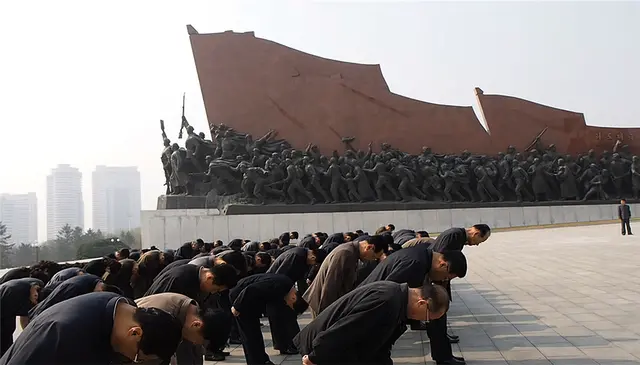A new documentary paints an intriguing yet also frustrating picture of North Korea, its director having been granted unprecedented access to Asia’s most secretive nation. Spanish filmmaker Álvaro Longoria ventures far beyond the typical sites of Pyongyang’s impressive architecture and deserted streets, visiting hospitals, universities and even apartments.
Free to go anywhere and interview anyone, albeit with an official escort, Longoria encounters the same rhetoric over and over – that the people are happy, indebted to glorious leader Kim Jong-un and firm believers injuche, North Korea’s unique interpretation of communist dogma.
While their isolation and indoctrination keeps the populace from questioning their status, Longoria also examines the West’s depiction of the DPRK and how the outlandish reports and horrific atrocities of Kim’s regime are all too easily circulated and believed.
In the middle of all this is Alejandro Cao de Benós, the only foreigner employed by the DPRK government. Based in Pyongyang, Cao de Benós helps foster international understanding of the country, and his unwavering loyalty may rival that of many locals.
The Propaganda Gamealso examines why the Kim family’s leadership has lasted so long – nuclear arsenal or not – and questions which nations would actually benefit from a united Korea. A US military presence would be harder to justify, China would lose a key diplomatic bargaining chip, and South Korea would be left with the bill.
Despite the apparent warm welcome, it’s difficult to interpret what Longoria sees as little more than a well-orchestrated charade. But that in itself makesThe Propaganda Gamea fascinating, if enigmatic, watch.
(SOUTH CHINA MORNING POST)
 简体中文
简体中文

